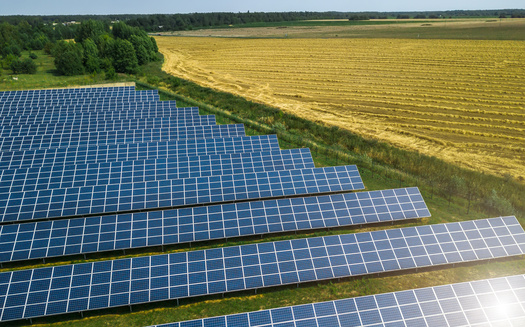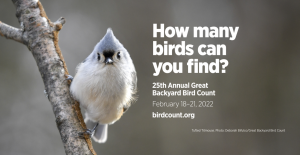CLICK HERE for the latest market quotes from the Iowa Agribusiness Network!
CLICK HERE for the latest market quotes from the Brownfield Ag News Network!
CLICK HERE for the latest market quotes from the Iowa Agribusiness Network!
CLICK HERE for the latest market quotes from the Brownfield Ag News Network!
Ag/Outdoor, Heartbeat Today, Podcasts
Jim Field speaks with Griswold FFA members Trista Swain, Logan Evans, Emma Mundorf, and Bailey Baucom about their chapter and celebrating National FFA Week.
Podcast: Play in new window | Download (7.5MB)
Subscribe: RSS
(Radio Iowa) – A coalition of environmentalists and land owners is seeking a meeting with Governor Kim Reynolds, hoping she’ll intervene and block the Iowa Utilities Board from granting eminent domain so carbon pipeline developers can acquire land from reluctant property owners. Judy Sebern Beachy and her sister inherited a farm in Floyd County that’s been owned by her family for four generations. One of the three pipelines would either run through the farm or be next to it.
“I’m all for doing things to help the climate, but I don’t feel that a pipeline is the answer for Iowa at this time.” Emma Schmit, an Iowa based organizer for Food and Water Watch, says the pipelines are a carbon con job, being proposed to ensure the oil and gas industry lasts longer.
“They’re also demanding to use our land against our consent…all to increase their own private net worth,” Schmit says. Schmit was among a small group that rallied at the statehouse this (Thursday) afternoon after a bill that would have prohibited the use of eminent domain for pipelines was tabled in a senate committee.
Bruce Rastetter owns Summit Carbon Solutions, one of the companies seeking landowner easements for a carbon pipeline. He says the project will be transformational for the ethanol industry and, by extension, the agriculture industry and hundreds of farmers have already signed voluntary easements to have the pipeline run through their property.
(Atlantic, Iowa) – Atlantic Parks and Recreation Department Director Bryant Rasmussen reports the roads in Sunnyside Park are once again open. The Park’s roads were closed for the season Dec. 10, 2021. Rasmussen said, while the roads in Sunnyside Park are open, the restrooms will remain closed until warmer temperatures are more consistent.
(Radio Iowa) – Republicans on the Senate Ag Committee have approved a bill that would forbid energy companies, including Rural Electric Cooperatives, from installing solar panels on land that’s suitable for growing corn and soybeans. Senator Dan Zumbach, a Republican from Ryan, says he sponsored the bill because of a rapidly expanding solar farm in his district. “It’s about protecting our most precious resource and that’s Iowa’s farmland,” Zumbach says.
If the bill becomes law, solar panel fields also would have to be at least half a mile from other solar installations and 12-hundred-50 (1250) feet from a neighbor’s property line. Senator Kevin Kinney, a Democrat from Oxford, says the bill limits his local R-E-C from expanding its solar operation, which is five miles from Kinney’s farm. “We’re also dealing with property rights, someone owning a property and being able to do with that property as they wish,” Kinney says.

Aerial shot top view of solar panel photovoltaic farm
Democrats on the committee voted against the bill, and the Senate’s Democratic leader says it would have a chilling effect on investment in solar energy installations in Iowa. Zumbach says he’s willing to consider changes to the bill, but he says there are no statewide restrictions on solar arrays today and it’s time to put some lines in the sand. “I’m saying the word ‘sand’ because lines in sand are movable,” Zumbach says, “but what we do need to have is some good energy policy on putting solar farms on agricultural land which is being used for agricultural purposes and having respect for folks on both sides of those fence lines.”
The bill would forbid solar installations on land with a Corn Suitability Rating of 65 or above, meaning the soil is considered fertile ground for row crops. The Iowa Solar Energy Trade Association and the Iowa Association of Rural Electric Cooperatives are opposed to the bill, while both the Iowa Farm Bureau and the Iowa Farmers Union have registered as undecided.
(Updated 11:45-a.m.) (Radio Iowa/KJAN) – MidAmerican Energy is proposing a wind farm of around 90-140 wind turbines altogether in Mills and Pottawattamie Counties, as part of their effort to achieve a 100 percent renewable energy supply. But some residents in the path of the wind farm are concerned about how it will alter their community. Treynor farmer Corey Vorthmann says he believes the sound and light that wind turbines produce would be disruptive to residents. “It’s something that is really unthinkable for us to see that we would wake up every morning and not really be able to take in the beauty of mother nature, but have it polluted with 300-foot wind turbines,” according to Vorthmann.
Charity Duey lives in Silver City and says the uncertainty of how the wind turbines may impact everything from the quality of life to migratory birds concerns her. “Just looking at it as a whole and going is this a fit for our community? That’s where people are going ‘I don’t think this is going to work for us,’” Duey says.Almost 800 people have joined a FaceBook group dedicated to stopping the project.
MidAmerican Energy spokesperson Geoff Greenwood tells KJAN News the project is simply a proposal at this point. He points out “The estimated property tax benefits to the two counties would be around $187-million over the life of the project for both counties. And that’s property tax revenue that goes toward hospitals and schools and roads in those counties, and that’s a big benefit.” For now, they are in the process of gauging landowners’ interest. He they know from experience that there are land owners who request to have turbines on their property, especially with fluctuating commodity and grain prices. “This is a steady paycheck for them for the next several decades, over the duration of the project.”
Greenwood said there are approximately 3,300 wind turbines in the State. MidAmerican has 37 wind projects in 32 counties. Their proposed “Wind Prime” project – an almost $4-billion dollar project – includes more wind and some Solar Energy. When complete, the project will add approximately 2,000 megawatts of power to the system. It’s not yet known how many additional turbines or projects will be included, but Greenwood says it may very well be up to nine such projects. The company hopes to complete the proposed project in 2024.
(Reporting by Kendall Crawford, Iowa Public Radio; Updated by KJAN News Director Ric Hanson)
(Radio Iowa) – A bill scheduled for debate in a Senate committee today (Wednesday) would take away the Iowa Utilities Board’s power to grant eminent domain to private companies, so land may be seized for carbon pipelines and similar projects. Senator Jeff Taylor, a Republican from Sioux Center, is the bill’s sponsor. “There is neither constitutional nor ethical justification for government to use its coercive power to seize private land or force an easement primarily for the benefit of wealthy, well-connected business owners,” Taylor says.
Jeff Boeyink is a lobbyist for Summit Carbon Solutions, the company that’s hired former Governor Terry Branstad to promote its carbon pipeline. Boeyink says changing the rules for eminent domain would send the message that Iowa’s regulatory climate is unstable. “With this bill, this project stops dead in its tracks,” Boeyink says. “That means all the tens of millions of dollars that have already been invested are lost, this project goes nowhere, farmers get no benefit, the ethanol plants we sign up are done.”
Iowans who’ve been notified their property is along the proposed routes for carbon pipelines spoke at an hour-long Senate subcommittee hearing on the bill yesterday (Tuesday). Dan Tronchetti owns a farm near Paton, in Greene County. “I thought I had property rights, but Summit Carbon is telling me I don’t…that they can ask for eminent domain and that I might as well go ahead and sign a voluntary easement,” Tronchetti said. “…I can’t believe that 40 years of hard work doesn’t mean anything.”
Kathy Stockdale of Iowa Falls held up a map showing the route for a proposed pipeline would pass through the middle of her farm. “We have 30 acres of wetlands right over here by where Summit it coming in,” Stockdale said. “…You can see that they’re going through a waterway up here. This is where the highly erodible is, so we are concerned because this is very sandy soil and when there’s a rain, what’s going to happen to the pipeline underneath?”
Republican Senator Craig Williams of Manning voted to advance the bill out of subcommittee, but he told pipeline critics it’s difficult to retroactively change regulations. “There are three or four other issues with this bill and I get that everybody wants us to pass this bill, I just don’t think that it does what you want it to do,” Williams says.
Republican Senator Mike Klimesh, of Spillville says the bill as currently written is too broad. “I think that it would make it virtually impossible for pipelines that serve a public good or a public purpose to be able to exist or grow or even cross the state,” Klimesh says. “What I’m talking about is oil pipelines, natural gas pipelines…pipelines that move essential services.”
But Klimesh says the issue merits more discussion and that’s why he also voted to make the bill eligible for consideration in the Senate Commerce Committee today (Wednesday).
(Radio Iowa) – A highly-contagious pig disease is being found in the Caribbean, and if African Swine Fever were to spread to the Midwest, it would have a devastating impact on pork producers. The viral disease is confirmed in the Dominican Republic and Haiti. Jack Shere, with the U-S-D-A’s Animal and Plant Health Inspection Service, says they’re keeping a close eye out.
“We have to be sensible about what we restrict,” Shere says. “Anything that we recover that’s pork-related from Haiti or from the Dominican Republic at the airports or from seaports, we confiscate that and we incinerate it.” The U-S has strengthened border protections, while pork from those Caribbean countries can’t be imported here. Plus, the U-S. monitors pork processing plants in Puerto Rico for the disease. Shere says those measures are working. “I think our mitigation strategies have been very successful up to this point,” Shere says. “As always, you never want to let your guard down with any disease.”
Shere says American producers should have good biosecurity measures in place, which includes restricting visitors and disinfecting boots. Ag economists say if African Swine Fever should make its way to the Midwest, pork export markets would shut down. Shere says the best way to keep it out of the U-S is for widespread testing in the Caribbean and culling pigs that are positive.
(by Katie Peikes, Iowa Public Radio)
(Updated w/changes) (Atlantic, Iowa) – Beginning today (Tue., Feb. 15, 2022), the Bull Creek Pathway in Atlantic, NORTH of 14th Street will be closed. Parks and Rec Director Bryant Rasmussen says “We apologize for any inconvenience, but we are excited to have this opportunity to address Bull Creek and expand on its beauty.”
He advises you to check the Parks and Rec Facebook page for updates on the work happening on the Bull Creek pathway. “In the meantime,” Rasmussen says, “please feel free to utilize the other trails through town, such as East Ridge, Mollett, or Schildberg.”

Bull Creek Pathway (Atlantic, Iowa)
At this time he said , the section of the Bull Creek Pathway SOUTH of 14th street will remain open.
(Ames, Iowa) – Iowa’s beef producers are asking their fellow Iowans to help find Iowa’s Best Burger in 2022. In this year’s quest, the Iowa Beef Industry Council (IBIC) and the Iowa Cattlemen’s Association (ICA) are encouraging you to nominate your favorite burger, whether it’s gourmet or down-home style. Kent Pruismann, a Rock Valley cattleman and IBIC Chairman, says “We are looking for the best burger served in an Iowa restaurant. Although burgers are often standard fare, we know from experience that the winners of this contest are well-above standard, and serve outstanding burgers. Finding these great burgers depends on Iowans choosing their favorite, and nominating them.”
This is the thirteenth year the two groups are holding the annual Iowa’s Best Burger contest, which officially kicks off on February 14, 2022. During the first phase of the contest, Iowans are encouraged to nominate their favorite burger before March 14, 2022. To qualify to be named Iowa’s Best Burger, the burger must be a 100% real beef patty and served on a bun or bread product. The more nominations a restaurant receives, the better the chances are for that burger to make it on the “Top Ten” list announced March 18 on WHO Radio’s “The Big Show”. Finalists will receive a certificate and be eligible for the secret taste-test of contest judges. The 2022 Best Burger in Iowa will be announced on May 2, 2022, with the kick-off of May Beef Month in Iowa. 
Details about the contest, rules, and the voting form are available on the Iowa Beef Industry Council website, www.iabeef.org. Burger lovers can also find a link to the online nomination form at the Iowa Beef Council Facebook page; or by texting BEEF to (515) 337-8924. Photos of your favorite burger can be shared socially using #IABestBurger. The nomination period will close at 5 p.m. on March 14, 2022.
Restaurants can download a digital toolkit including promotional materials for the contest from IBIC’s website at www.iabeef.org to promote the contest to their customers. The promotional materials can be used in the restaurants, online, or on social media.
(Worldwide) — The 25th Great Backyard Bird Count (GBBC) is set to take place from Friday, February 18 through Monday, February 21. Volunteers from around the world are invited to count the birds they see for at least 15 minutes on one or more days of the count, then enter their checklists at birdcount.org. Anyone with internet access can participate, no matter what their skill level—it’s a great family activity, too. Officials say a lot has changed since the first Great Backyard Bird Count (GBBC) was held in 1998. Each year brings unwavering enthusiasm from the growing number of participants in this now-global event. All the data contribute to a snapshot of bird distribution and help scientists see changes over the past 20 years.
Varying weather conditions so far this winter are producing a few trends that GBBC participants can watch for during the count. Jon McCracken, Bird Studies Canada’s National Program Director, reminds participants in Canada and the U.S. to keep watch for snowies. He says, “The GBBC has done a terrific job of tracking irruptions of Snowy Owls southward over the past several years. We can’t predict what winter 2020 will bring, because Snowy Owl populations are so closely tied to unpredictable ‘cycles’ of lemmings in the Arctic. These cycles occur at intervals between two and six years. Nevertheless, there are already reports of Snowy Owls as far south as Virginia.”

Tufted Titmouse
In addition to counting birds, the GBBC photo contest has also been a hit with participants since it was introduced in 2006. Since then, tens of thousands of stunning images have been submitted. Learn more about how to take part in the Great Backyard Bird Count at birdcount.org where downloadable instructions and an explanatory PowerPoint are available. The GBBC is a joint project of the Cornell Lab of Ornithology and the National Audubon Society with partner Bird Studies Canada and is made possible in part by sponsor Wild Birds Unlimited.
This is a wonderful family program for bird watchers of all ages and is free of charge. All you need is basic knowledge of bird identification! It is not required that you record every species you see, only those that can be properly identified. To participate in the bird count either call the Conservation Board at 712-769-2372 and receive everything you need in the mail (or pick up in the office), or go to the website: http://www.birdcount.org/ and follow the instructions.
Learn how to participate on-line step by step directions, at the following (AREA) locations:
Get ready to be involved in a great citizen science project! Organizers will show and explain how to participate in the project. They will also include some tips on identifying birds.